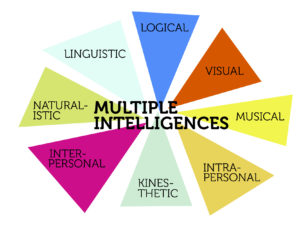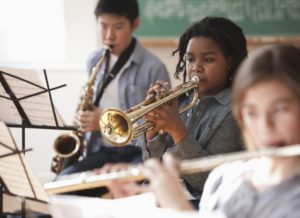Characterized by perception, consciousness, self-awareness, and volition, human intelligence can be defined as an intellectual capacity of a human being to learn, understand, conceive, and implement. Based on thoughts and experiences, humans develop their intelligence and use the same as a key element in decision-making, problem-solving and in many other day-to-day activities like gathering information, communication and so on. This intelligence, as mentioned by Howard Earl Gardner, an American developmental psychologist in his book “Frames of Mind,” is classified into eight categories. These include linguistic intelligence (having an affinity for words, both spoken and written), logical-mathematical intelligence (logical, mathematical as well as scientific ability), spatial intelligence (an ability to visualize objects from different angle and spaces), bodily-kinesthetic intelligence (an ability to use body language and signals to send messages, and to solve problems), naturalistic intelligence (an ability to observe and appreciate the patterns in nature and outdoors), interpersonal intelligence (an ability to understand people in the sense of empathy) and intrapersonal intelligence (a correlative ability to understand oneself in-depth. Ex: Understanding one’s own strengths and weaknesses).
Musical Intelligence, on the other hand, is an ability not only to recognize musical elements like pitch, rhythm, timbre, and tone, but also to understand the relationship between sound and feeling, and to create or reproduce a melody or a rhythmic pattern accordingly. Some of the live examples of musical intelligence are musicians, vocalists, and sensitive listeners, who display their greater sensitivity towards the rhythm and melody. They are capable of: studying with music in the background, singing, playing one or more musical instruments and can even discern different musical instruments in a composition.
According to the analysis of covariance (ANCOVA), conducted by Osamah (Mohammed Ameen) Ahmad Aladalalah and Soon Fook Fong, on third grade primary pupils enrolled in the ALKORAH educational directorate at Jordan, the pupils with high musical intelligence were proved to possess the largest capacity to perform significantly better in a series of aptitude tests, as compared to pupils with low musical intelligence. The pupils with high musical intelligence had better memory, attributed to the larger mental capacity that they showed during the use of working memory for cognitive processing, and the strong aural component, enabling them to learn the hardest theories easily. If sung, they showed improvements in learning, even in subjects like Mathematics and English.
So, how does this work?
As per the arguments of traditional and modern experts, the human brain has two halves, the left hemisphere for logical, analytical and strategic thinking, and the right hemisphere for creativity, where musical capacities like melody recognition and generation are localized. Therefore, to solve the problems and/or to take decisions in a creative way, it is essential to achieve a balance between both the hemispheres of the brain, through continuous crossover of neural impulses between them. To achieve the same, it requires an all-round education, which constitutes the development of the intrinsic parts of the whole brain, which is possible through the music education that focuses the development of musical intelligence. Music education is essentially said to have four different meanings:
- Education in music i. e., promoting music listening, which includes teaching and learning by listening and appreciating the music.
- Education about music i. e., teaching and learning the propositional knowledge about music by converting the musical symbols and notations into sounds.
- Education for music i. e., instrumental teaching and learning for procedural knowledge about music. This is a performance-oriented education, which involves the use of a specific instrument/group of instruments along with a performer, who sings or plays the musical instrument that he/she is capable of, and knows their limitations on a physical, emotional and spiritual level.
- Education using music involves the teaching and learning of music, focusing on some direct goals like accelerated learning for whole brain development and improvement of health and spiritual well-being.
Though all the four elements of musical education mentioned above are meant for the development of musical intelligence in a person, the first three of the four meanings need the educators to have specialized knowledge in music, wherein the fourth one, focusing on the academic lessons, incorporates certain musical activities to improve the effectiveness of teaching and learning and needs no specialized knowledge in music to be involved. This may simply include the use of nursery rhymes by teachers to embed particular concepts into the minds of children in a wholesome way. This act of teaching pushes the real musical experiences in the background by engaging cognitive perception and involves the participants on a deeply personal level. However, to do this, a teacher needs to know learning preferences of an individual and needs to have a particular intention for the activity to transform into one of deep meaning and transformation. The development process takes place accordingly, as the potential of the brain differs from one person to another.
However, musical intelligence is usually considered to be synonymous with technical understanding of music. However, technicality is only a small part of musical intelligence as an individual with thorough knowledge about music may not be able to connect with a piece of music on an emotional level, as other untrained people might be able to.
If our music resonates with someone on a very personal level, then that is great, but if someone else reacts to it in a visceral way then that is ok also. As long as people feel something then I don’t really mind what it is. –
– James Kelly (Altar of Plagues)
Musical intelligence cannot be restrained by technical concepts, nor can it be fully embodied in the emotions of an individual. To be musical intelligent is to keep peeling off the layers of musical composition, where each step takes you further and further into the womb of something that you never knew existed within as simple an element as a song.
 The Holy Connection An Alternative Exploration of Existence
The Holy Connection An Alternative Exploration of Existence




